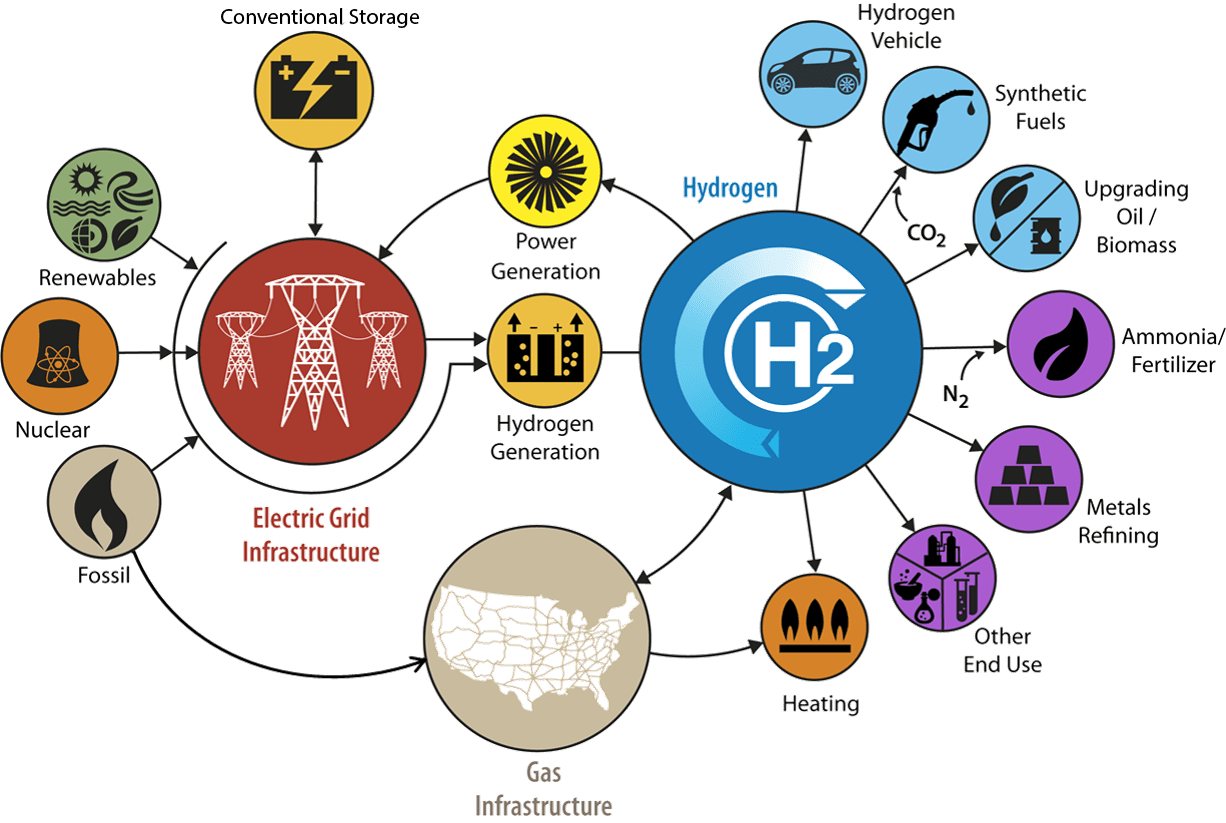U.S. Must Take Lead Role in Hydrogen Use For Our Energy Future
The post U.S. Must Take Lead Role in Hydrogen Use For Our Energy Future appeared first on POWER Magazine.

For a century our country has relied on fossil fuels to power our economy. But that is beginning to change with wind, solar, renewable fuels, hydrogen, advanced nuclear options, and more.
The effort to decarbonize our economy and protect the planet from greenhouse gas emissions is now aggressively underway in the U.S. and other parts of the world. That major effort to reduce carbon emissions calls on a new fuel that is clean, widely available, and storable.
COMMENTARY
Using hydrogen and fuel cells for clean, reliable, and grid-independent power is an exciting commitment to a fuel that can be widely available and emits only water as a byproduct. Hydrogen and fuel cells must clearly be a significant part of our energy future.
If we are to achieve a clean electric grid by 2035 and use wind and solar for that grid, we must have a means of storing energy for the intermittency that is a characteristic of those power options. Hydrogen can be used to provide that storage.
 Byron Dorgan
Byron DorganAnd, if our goal is a transportation system that is pollution-free, refuels in minutes, and doesn't need to be plugged in or cap the driving range, how does that compare to other options?
None of this technology is a far-off dream. Today thousands of fuel cells use hydrogen for forklifts, automobiles, buses and trucks, and for stationary power. In the warehouse behind your Walmart or Home Depot, there is a growing use of zero emission, fuel cell-powered forklifts. Every few seconds, some customer is fueling with hydrogen at a warehouse. Moreover, hydrogen can decarbonize basic industries like steel and ammonia production, allowing expansion of those industries for domestic and export use.
 Robert Walker
Robert WalkerSome critics of hydrogen still say the fuel is not really clean, because much of its present production involves the use of reformed natural gas. But that criticism is going to become quickly obsolete when advanced approaches, including electrolyzers and high-temperature nuclear reactors, come online with their ability to use heat to create hydrogen.
But because other countries are investing vastly more in hydrogen and fuel cells than the U.S., we are in danger of losing our leadership role. Other governments have more than $70 billion committed to hydrogen. The global industry projects a ten-fold increase in hydrogen demand by 2050 versus today, generating $2.5 trillion in revenue and 30 million jobs. The U.S. has already ceded clean energy leadership in the manufacture of equipment for solar and wind power, and batteries. We can't afford the same story with hydrogen fuel cells.
Why hydrogen? It is an energy carrier that is versatile. Multiple economic sectors can be addressed with hydrogen. Power generation, energy storage, industrial products like steel, cement and fertilizer, including buildings and even whole communities. It is also an enabler for solar and wind technologies by producing and storing hydrogen for use later. It can enable a clean grid for charging electric vehicles, and enable the next generation of small, modular, inherently safe nuclear reactors to be economically competitive. All of this can be accomplished while meeting global goals of carbon dioxide reduction, air quality improvement, energy supply resilience, energy independence and job creation.
Let us remember that hydrogen is the most abundant element in the universe. Those who find the best, low-cost options for producing, storing, and using hydrogen in productive ways will dominate the energy economy of the late 2000s and beyond. Those nations that move quickly now will realize much cleaner power generation, with the only emission being water. And the economic advantage of combining advanced nuclear power with clean hydrogen production will mean a dual stream of revenue from both hydrogen and clean power.
These are the opportunities that our country cannot afford to lose. Today, because of U.S. Department of Energy investments, we hold more than 1,100 U.S. patents, and 30 commercial technologies have been developed by industry, with 70 more possible in the next few years. We are truly on the cusp of widespread commercialization. But it will take sustained research as well as deployment to cut the costs of technology and assure policies at the local, state and national levels that encourage and endorse hydrogen usage. The Hydrogen Energy Earthshot, just announced - to meet $1 for 1 kilogram in 1 decade, is a bold, ambitious goal that the entire nation's best minds can engage in. It's this generation's moonshot.
There is an unbelievably bright energy future ahead if only we make the right choices. Imagine an electric fuel cell car in your garage has 400 miles of range, can be refueled in five minutes, and if the power in your house goes out, can be plugged in like a generator. Imagine long-haul, heavy duty trucks that emit only water, run for hundreds of miles, and can be quickly refueled. Imagine a power grid made up of clean energy generators that have hydrogen storage capacity to assure reliability. Imagine whole industries capable of expanding their presence with cleaner, more efficient power. Imagine a leadership role for the U.S. in the multi-trillion-dollar hydrogen economy that is emerging with millions of jobs created. It doesn't take much imagination to recognize that this has to be part of the future.
-Byron Dorgan, former Democratic senator from North Dakota, is a senior policy advisor at Arent Fox and co-chair of the firm's government relations practice. Robert Walker, a former Republican congressman from Pennsylvania, is CEO of MoonWalker Associates.
The post U.S. Must Take Lead Role in Hydrogen Use For Our Energy Future appeared first on POWER Magazine.